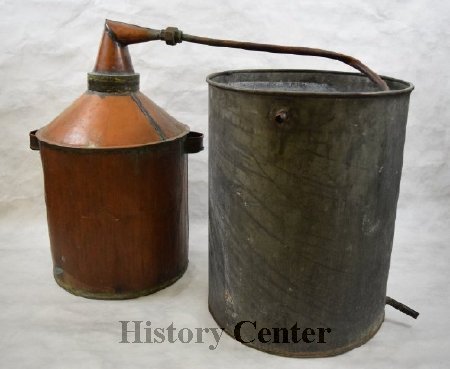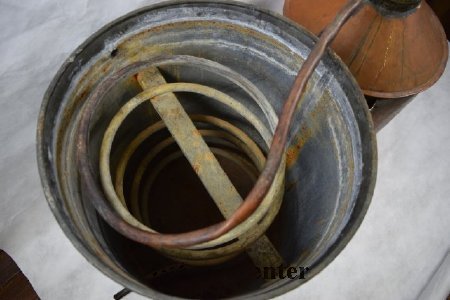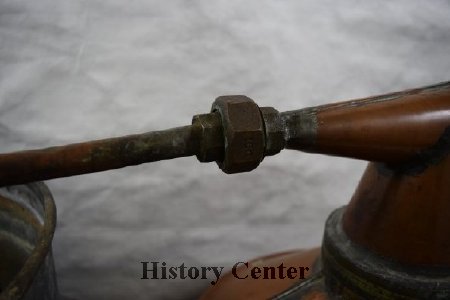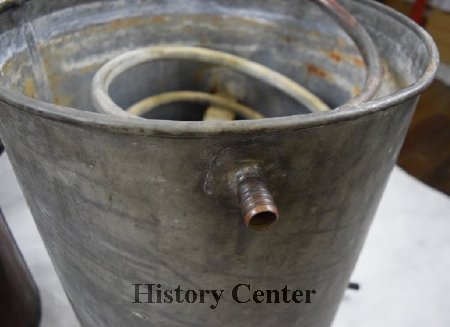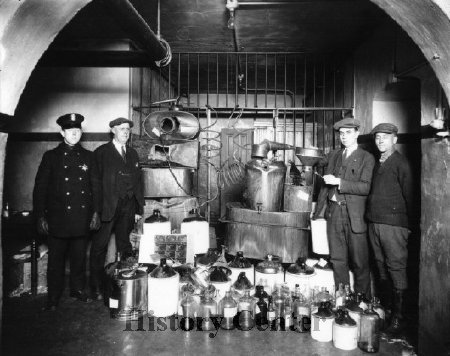Date:
c. 1930
Title:
Prohibition Still
Description:
By the 1920s the most significant change to affect the lives of Fort Wayne residents was Prohibition. As a result of the 18th Amendment to the Constitution, which in 1919 forbade the manufacture, sale, transportation, and export of "intoxicating liquors," Fort Wayne's many saloons either closed or became restaurants. Centlivre and Berghoff Breweries, Fort Wayne's two great breweries, ceased the production of beer. Beer wagons that were common on city streets were gone and festivals that commonly featured alcohol became "dry" parties. However, alcohol consumption was very much a part of the culture of Fort Wayne and many families secretly manufactured their own bathtub gin or frequented speakeasies hidden in the back rooms of downtown buildings or rural "road houses." By the end of the 1920s, federal raids against both types of operations were common in Allen County. In 1933, the 21st Amendment to the Constitution was passed and ratified, ending national Prohibition.
This eight-gallon still features a boiler with soldered seams, two side handles and a screw on nozzle. The condenser tub is made of ferrous metal with a copper tube coiled inside. This still was used by George J. Huebner during Prohibition. Huebner was in the furnace and sheet metal business and he con-structed this unit and a few others for friends.
This eight-gallon still features a boiler with soldered seams, two side handles and a screw on nozzle. The condenser tub is made of ferrous metal with a copper tube coiled inside. This still was used by George J. Huebner during Prohibition. Huebner was in the furnace and sheet metal business and he con-structed this unit and a few others for friends.

